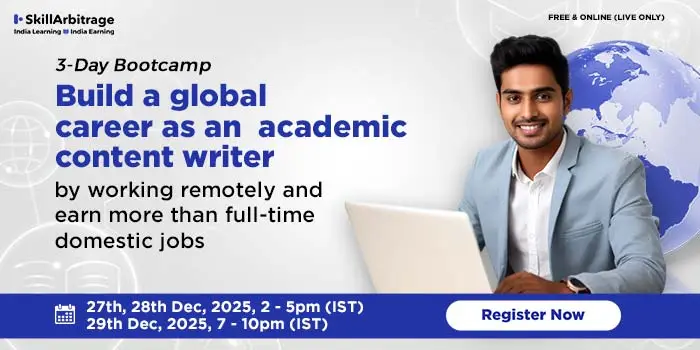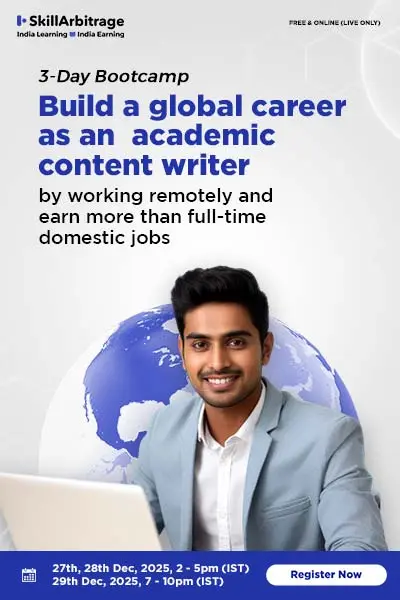Interviews
8058
0
0
“In the coming years, I aim to contribute significantly to both the academic and practical discourse on international arbitration through publications, speaking engagements, and participation in global forums.” – Abhilasha Vij, Associate at Allen Overy Shearman Sterling LLP, Germany.
This interview was taken by SuperLawyer Team
Posted on May 01, 2025
This interview has been published by Anshi Mudgal and The SuperLawyer Team

Coming from a commerce background, what inspired you to transition into law as a career? Were there any specific experiences or moments that steered you in this direction and set you on this remarkable path?
During my later years at school, I was inclined towards commerce and economics. However, once I started pursuing a Bachelor of Commerce degree at the University of Delhi, I realised that I was particularly fascinated by business and company laws. I delved deeper into the subject and spoke with individuals who were pursuing careers in law. It was then that I knew this was the field I wanted to study.
In the second year of my LL.B. at the Faculty of Law, University of Delhi, I encountered arbitration for the first. While interning at a law firm in Delhi, I was asked to assist with an ongoing arbitration case. Beyond providing access to an early resolution of commercial disputes, arbitration offered systematic and streamlined processes and neutrality. I was immensely impressed by the concept of an alternative forum for dispute resolution, especially in a country like India where the courts are burdened with pending litigation. This initial experience sparked my interest in becoming an arbitration practitioner.
With guidance from my mentors, I gained further experience in this field and began working as a disputes lawyer at Luthra & Luthra Law Offices.
You completed a degree of Master of International Economic Law, Business, and Policy from Stanford Law School, USA. How has this specialized education enriched your career? What aspects of the program at Stanford were particularly valuable for you, and did you encounter any challenges during your studies? How would you describe your overall experience there?
When I applied for an LL.M. at Stanford, I saw it as an option to broaden my horizons. I did not want to limit my exposure to only international arbitration. I had read about a variety of innovative courses at Stanford, such as International Business Negotiations, Regulating Artificial Intelligence, Data: Privacy, Property and Security, Facilitation, etc. I wanted to take these courses in addition to the traditional subjects and have a well-rounded experience. I am glad that my instincts paid off. For instance, International Business Negotiations involved teams from Stanford and another law school in a simulated corporate transaction over a period of three months. As an arbitration practitioner, I had never experienced the negotiation aspect of a transaction. This course provided insight into the commercial aspects of the contractual clauses that I regularly encounter in my work.
In addition to offering versatile courses, Stanford’s small class-size offered numerous opportunities to engage in rich and meaningful discussions with a brilliant set of individuals and learn more about their experiences in their respective jurisdictions. However, it was also challenging to be there. When surrounded by brilliance, it is natural to experience self-doubt at times. Fortunately, Stanford has an excellent faculty and counselors who helped me navigate these challenges.
Overall, my year at Stanford was the best investment of my life. I thoroughly enjoyed being on campus, attending classes and guest lectures, socialising with peers, and occasionally taking small trips to the beautiful parts of California!
In the early stages of your career, you worked as an associate with various firms in India. What key learning experiences from that time played a pivotal role in shaping your career trajectory? Can you recall any specific instance that was especially impactful for you?
A great benefit of studying law in Delhi was the access to full-time and part-time internships throughout most of the year. I interned at several law firms during my LL.B., which taught me many skills that are highly valued in junior lawyers. While education is crucial, having the right mentor is equally important. I was fortunate to be mentored by some of the nicest and most talented lawyers in Delhi.
I began my career as an associate with Mr. Gaurav Bahl, an excellent mentor who significantly shaped my professional path. Working with him prepared me for the next step in my career: joining a law firm. I joined Luthra & Luthra Law Offices and worked with the disputes team for the next three years. During this time, I handled arbitration matters, commercial litigation cases, and occasionally argued smaller cases in court. While it was fascinating to work on a variety of legal issues in office, it was exhilarating to argue cases before judges. Sometimes, hard work paid off in the form of favourable judgments and orders. At other times, there were invaluable lessons. To this day, working in the field of law brings me immense joy, and I would not trade it for the world.
One of the most enriching experiences at the law firm was when my partner encouraged me to handle an appeal before the Supreme Court in a matter involving complex securities law. Before addressing the legal issues, it was crucial to work closely with technical experts to understand the intricacies of the futures and options market and the role of their business. Looking back, I vividly remember how much I enjoyed working outside my comfort zone on complex legal issues and resolving them. However, achieving a favourable judgment would not have been possible without deep diving into the commercial aspects of the case. As a disputes lawyer, I believe the best results for your client can be achieved by understanding their needs and the needs of their business. Whenever I get a new case, I invest a considerable amount of time in understanding the client’s business and what a desirable outcome looks like for them.
After your time in India, you transitioned to an international practice, working with Freshfields in Dubai. How did you manage the cultural shift and navigate the complexities of international law, especially in the realm of dispute resolution? How do the legal environments in Dubai and India differ, particularly in handling arbitration and cross-border disputes?
During my LL.M., my career counsellor at Stanford encouraged me to explore global opportunities alongside my job search in the United States. The US market is challenging, and only a few firms are interested in international law graduates. I connected with several professionals, meeting arbitration practitioners over coffee in San Francisco and New York, and through virtual meetings via Zoom. During one such interaction, I came across Freshfields’ six-month trainee programme. I applied and was accepted after a couple of interviews. The programme served as a springboard for my international career. Freshfields sometimes hires from their pool of trainees, and that’s how my six-month stint turned into a full-time associate position.
Dubai is truly an international legal market. The international arbitration team comprised lawyers from different parts of the world and advised clients from several jurisdictions. The style of working was unlike what I had experienced in India, but I was fortunate to find kind and patient mentors and teammates. I worked on multi-jurisdictional arbitrations, which offered the opportunity to collaborate with local counsels from India, England, the Middle East, Australia, and other regions. On several matters, the teams included colleagues from different jurisdictions, making networking and collaborating within the firm quite easy.
It was a challenge to unlearn the traditional Indian style of drafting and embrace the US-style simple and succinct legal drafting. Moreover, the scale of the matters necessitated the use of technology, so I learned how to utilise emerging legal-tech tools to make my work more efficient. I believe it was important to approach my job with an open mind – it really makes your life easier.
A great aspect of working with an international law firm was that my work was not limited to commercial arbitration. From time to time, I engaged in investment arbitration, investigations, and non-contentious legal work. My favourite part, though, was working as a tribunal assistant in several alternative dispute resolution cases involving the International Tennis Integrity Agency and the Basketball Arbitral Tribunal.
Currently, in your role at Allen Overy Shearman Sterling LLP in Germany dealing in International Dispute Resolution, you handle complex international commercial arbitration and cross-border disputes. What do you find to be the most challenging aspect of managing such disputes, and can you share a specific case that stands out as a significant learning experience?
I have been working at A&O Shearman since February 2024. My decision to move to Germany was motivated by personal reasons, and it was a difficult choice. I was seeking to join a team with an international practice, not limited to commercial arbitration. Over the past 14 months, I have already worked on post-M&A disputes, energy disputes, investor-state issues, and investigations.
A challenging aspect of working in the German legal market is dealing with the German language. Many contractual disputes are governed by German law, and important commentaries and case law are only available in German. Moreover, Germany is a civil law country, and the concepts can be quite different from common law. Therefore, as an arbitration lawyer, I work closely with German law experts. This collaboration provides me with an opportunity to dive into a different legal system and learn more about civil law. It is quite fascinating!
Recently, I advised on claims under a warranty and indemnity insurance in an M&A transaction. This has been a great learning experience, as I had not dealt with this issue before. It is an emerging area of disputes, and there is only limited literature on its practical aspects. As a lawyer, you must read all you can and trust your instincts. I am doing that, and it is helping me develop expertise in a niche area of law.
As someone who has built an illustrious career in international arbitration, what advice would you give to young professionals aspiring to follow a similar path? How can they position themselves early on to excel in this competitive field, and are there any specific resources or strategies you would recommend for deepening one’s knowledge of international arbitration?
First and foremost, I highly recommend gaining internship experience during your LL.B. Reading books and writing exams at law school is very different from how law functions in practice. My internships helped me realise that I wanted to specialise in dispute resolution, with a focus on arbitration.
Then, pursuing an LL.M. is a significant financial commitment. It should be viewed as an investment that may or may not yield immediate results, so it is important to remain open to all possibilities. I cannot emphasise enough on the importance of networking during your year abroad. An LL.M. is not just about studying law; it is also about developing and refining skills that will help you grow as a professional. Invest considerable time in researching law schools to find the one that meets your individual needs.
For students, I would highly recommend participating in moot court competitions. There are several arbitration-specific moot courts held both in and outside India (e.g. VIS Arbitration Moot, Frankfurt Investment Arbitration Moot, Sports Arbitration Moot). These competitions not only provide an opportunity to learn about arbitration in practice, but also to network with students and professionals from other cities and countries.
For young professionals, the easiest way to deepen your knowledge of international arbitration is by reading journal articles and blog posts on arbitration cases (e.g., Kluwer Arbitration, GAR) and staying updated with the developments in this field. Attending lectures and conferences on arbitration is also highly beneficial – not only for learning more about the law but also for engaging in meaningful conversations with arbitration practitioners. LinkedIn often features opportunities and scholarships to attend conferences abroad, offering a great chance to broaden your horizon before committing to an LL.M. or a job with a law firm abroad.
Given your demanding role, how do you maintain a healthy balance between your professional and personal life? Are there any hobbies or activities you engage in to relax and recharge?
Maintaining a work-life balance is a significant challenge in the legal profession. As a young professional, I often overlooked this crucial aspect. However, in recent years, I have started to take it more seriously. I greatly appreciate the work culture in Germany, where there is strong emphasis on both physical and mental well-being. This supportive environment has encouraged me to take better care of myself while continuing to excel as a lawyer.
For relaxation, I enjoy reading fiction and listening to music. Occasionally, I take holidays and plan weekend trips with family or friends to the mountains or other European cities. I also try to exercise regularly and eat healthy. Most importantly, I ensure that I take a break on weekends, unless an urgent matter requires my attention.
With such an impressive and diverse career, what do you see as the next challenge or opportunity you would like to pursue? How do you envision your career evolving over the next few years, and what legacy would you like to leave in the field of international arbitration?
As an India-qualified lawyer working with international law firms, I have had the privilege of navigating diverse legal landscapes and engaging with a variety of complex cases. The next challenge I am eager to pursue is acting as an arbitrator. In the past, I have thoroughly enjoyed being a tribunal assistant, and I am excited to experience the decision-making aspects once again.
In the coming years, I aim to contribute significantly to both the academic and practical discourse on international arbitration through publications, speaking engagements, and participation in global forums. Additionally, I aspire to mentor young lawyers, particularly those from underrepresented regions, and provide training to help them navigate the complexities of international arbitration.
Get in touch with Abhilasha Vij –







No comments yet
Be the first to share your thoughts about this interview.